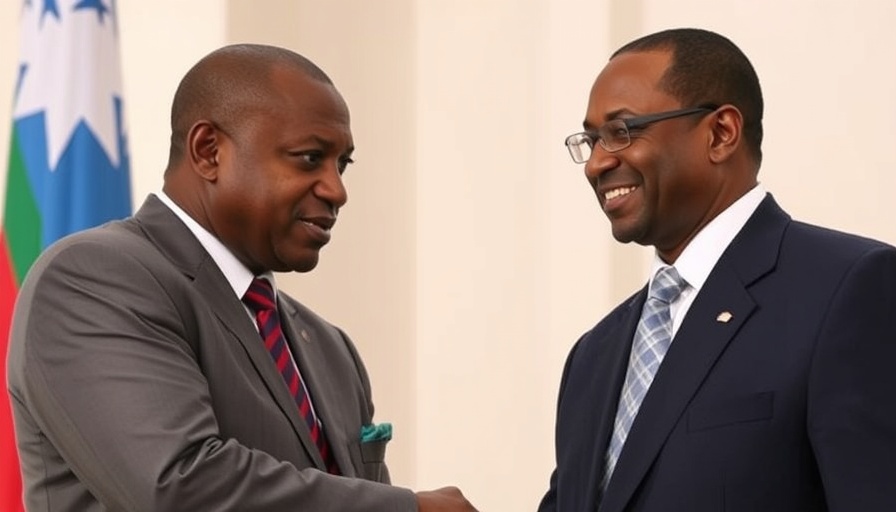
Rwanda's Diplomatic Shifts: No Peace Deal with DRC in Sight
Recent developments from Rwanda suggest that the long-anticipated peace agreement with the Democratic Republic of Congo (DRC) is heading toward more complexities. Minister of Foreign Affairs, Olivier Nduhungirehe, announced that the signing planned for June 15, 2025, in Washington has been postponed as negotiations evolve. This news raises eyebrows considering the mounting urgency to address ongoing conflicts in eastern DRC, which have led to widespread violence and humanitarian crises affecting millions.
The Stakes in the DRC: External Pressures and Internal Dynamics
The anticipated deal was designed to establish a framework for peace in the troubled region. It has been brokered with significant involvement from the United States, emphasizing conditions that require Rwanda to withdraw its military presence from DRC. This stance has repeatedly surfaced in discussions, particularly underscored by U.S. envoy Massad Boulos, who openly states the necessity for both the M23 militant group to disarm and Rwandan forces to exit the DRC for any meaningful peace to be achieved.
Geopolitical Implications: Understanding Rwanda's Position
As tensions mount, it is essential to understand Rwanda's perspective. Officials argue that their military presence is crucial for national security, particularly against the backdrop of the FDLR militia, which they claim poses an existential threat. Such a narrative is not only a matter of security strategy but also a commentary on the delicate balance of power within the region. Rwanda's actions are aimed at safeguarding its sovereignty while confronting accusations that could destabilize its foreign relations.
Evaluating the Path Forward: The Role of International Diplomacy
With the peace negotiations hanging in the balance, the nuances of international diplomacy come into play. The postponement of the deal indicates a profound need for consensus among involved parties. Continued dialogues are essential, yet can be significantly influenced by media narratives and leaked documents that could threaten negotiations. Observers underscore the importance of patience and strategic diplomacy to navigate the impasse.
Call to Action: The Path to Stability in East Africa
As business leaders, policymakers, and academics keep a close watch on these unfolding events, understanding the geopolitical currents is essential. This latest news not only impacts the humanitarian situation in the DRC but reverberates throughout Africa's economy and governance frameworks. Stakeholders must remain vigilant and continue advocating for effective, sustainable diplomatic efforts to ensure stability in the region.
 Add Row
Add Row  Add
Add 


Write A Comment